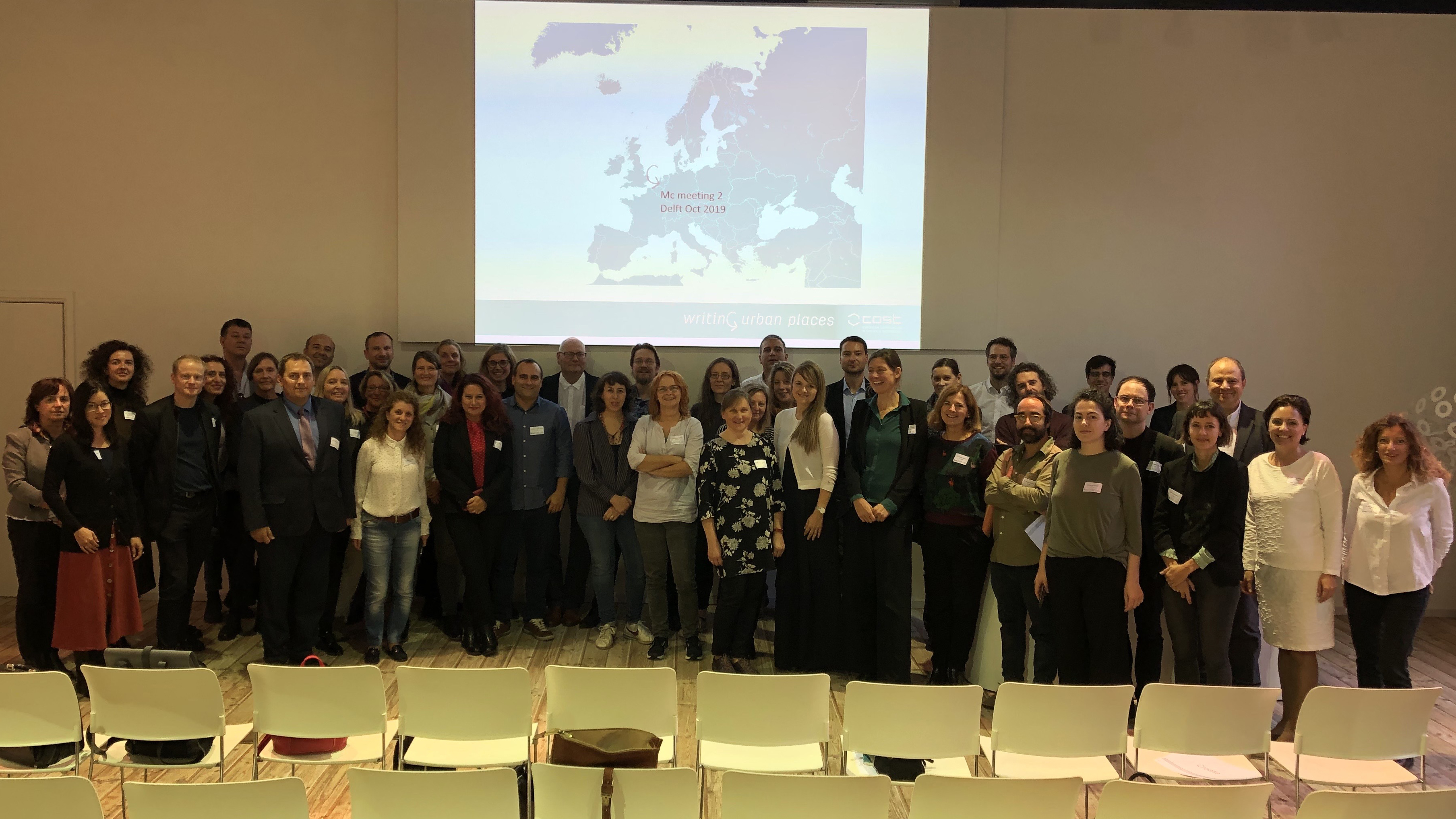Writing Urban Places
New Narratives of the European City
Writing Urban Places proposes an innovative investigation and implementation of a process for developing human understanding of communities, their society, and their situatedness, by narrative methods. It focuses particularly on the potential of narrative methods for urban development in European medium-sized cities.By recognising the value of local urban narratives – stories rich in information regarding citizens socio-spatial practices, perceptions and expectations – the Action aims to articulate a set of concrete literary devices within a host of spatial disciplines; bringing together scientific research in the fields of literary studies, urban planning and architecture; and positioning this knowledge vis-à-vis progressive redevelopment policies carried out in medium-sized cities in Europe.

Writing Urban Places comprises three thematic targets to be explored theoretically as well as in case studies:
- Meaningfulness: offering local communities and professionals the ability to improve their understanding of their built environment;
- Appropriation: empowering communities by improving their ability to project their feelings on their built environment.
- Integration: offering concrete tools and methods for the construction of common grounds among communities, based on relations of meaningfulness and appropriation of their built environment.
Based on a robust investigative tradition in these fields, the Writing Urban Places Action brings together solid experience in linking the literary and narrative and the built and offers the necessary scientific background for the assessment of the contemporary city, while cherishing and enhancing the specificity of local urban cultures in the European context.
Facts
| Funder: | European Network Cost |
| Grant amount: | € 600.000 |
| Grant number: | Action CA 18126 |
| Role TU Delft: | Lead partner |
| Project duration: | 2019 - 2023 |
| TU Delft researchers: |